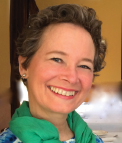For a year before I was diagnosed with acute myeloid leukemia (AML) in December 2011, I had what I thought were the lingering remnants of a bad case of bronchitis. My breathing was labored, I had a chronic cough, and occasionally my voice would give out. Every time I saw my pulmonologist, I would tell him about my symptoms and ask him why they were persisting for so long. I never got a satisfactory answer.
I guess because of my relatively young age—I was just 46 at the time—and otherwise good health, my symptoms weren’t triggering any red flags. The doctor would send me home with more prescriptions for inhalers and instructions to see him again in a few weeks.
My deteriorating health finally got his attention when strange bruises started appearing on my legs. Results from blood tests showed that I had too many white blood cells and not enough red blood cells or platelets, suggesting I had leukemia. A bone marrow biopsy confirmed that I had AML and that the subtype was acute myelomonocytic leukemia (M4).
The Shock of Having Cancer
By the time I got the diagnosis, I was so sick I had to be admitted to a cancer center for immediate intensive chemotherapy. I was given high doses of a combination of cytarabine, daunorubicin, and etoposide and had such serious side effects from the treatment I remained in the hospital for 42 days.
Although the therapy put me in remission, I remained on the regimen until July 2012 to increase my chances of staying that way. Unfortunately, 6 months later I relapsed and, after another round of induction chemotherapy, I had an autologous bone marrow transplant. While waiting for my immune system to kick in, I overcame two nearly fatal illnesses—pneumonia and sepsis—but the transplant was a success, and I’ve been in remission ever since.
The whole process has left me in a state of shock, and I’m still processing what happened to me. During treatment, I tried to make sense of the ramifications of getting such a life-threatening illness and figure out how to live the rest of my life. I knew I couldn’t project too far into the future—that was still too uncertain—nor did I want to dwell too much on the past. My only recourse was to live as much in the present as I could, and that’s what I still try to do, but it’s not easy.
Living With Intention
Although I feel healthy, and a recent follow-up bone marrow biopsy showed I remain cancer-free, I’m still grappling with the emotional fallout of having cancer, and I’m not quite sure how to plan for a future that was so recently threatened.
Once you have cancer, it’s impossible not to think about death, and the experience has made me want to live a more purposeful life. Having leukemia dragged me deeper into myself and I’ve learned a lot. Now I’m more aware of who I am and what I believe and what I can and cannot control. While I may not always have control over what happens to me, I do have control over how I respond to new challenges, and that’s empowering.
Facing the Future
During my treatment and recovery from the transplant, I was fortunate to have a wonderful medical team taking care of me, and I can’t express enough the power that their kind and encouraging words had on me. Having cancer was an extremely lonely experience, especially before, during, and after each round of chemotherapy and my transplant, when I was so vulnerable to infection and had to be kept in protective isolation. At such times, the attentive care of my medical team meant a lot.
That said, I wish the cancer center had dedicated psychosocial support programs in place to help me overcome my anxiety. I also could have used more help with the transition from cancer patient to cancer survivor.
As I reflect on the past 2 years, I feel grateful for every new day. I’m getting stronger emotionally and physically, and my life is finally returning to normal. While I’m determined to live as much as possible in the present, I’m cautiously starting to raise my head higher to see what might be ahead, and I’m beginning to feel less afraid. ■


